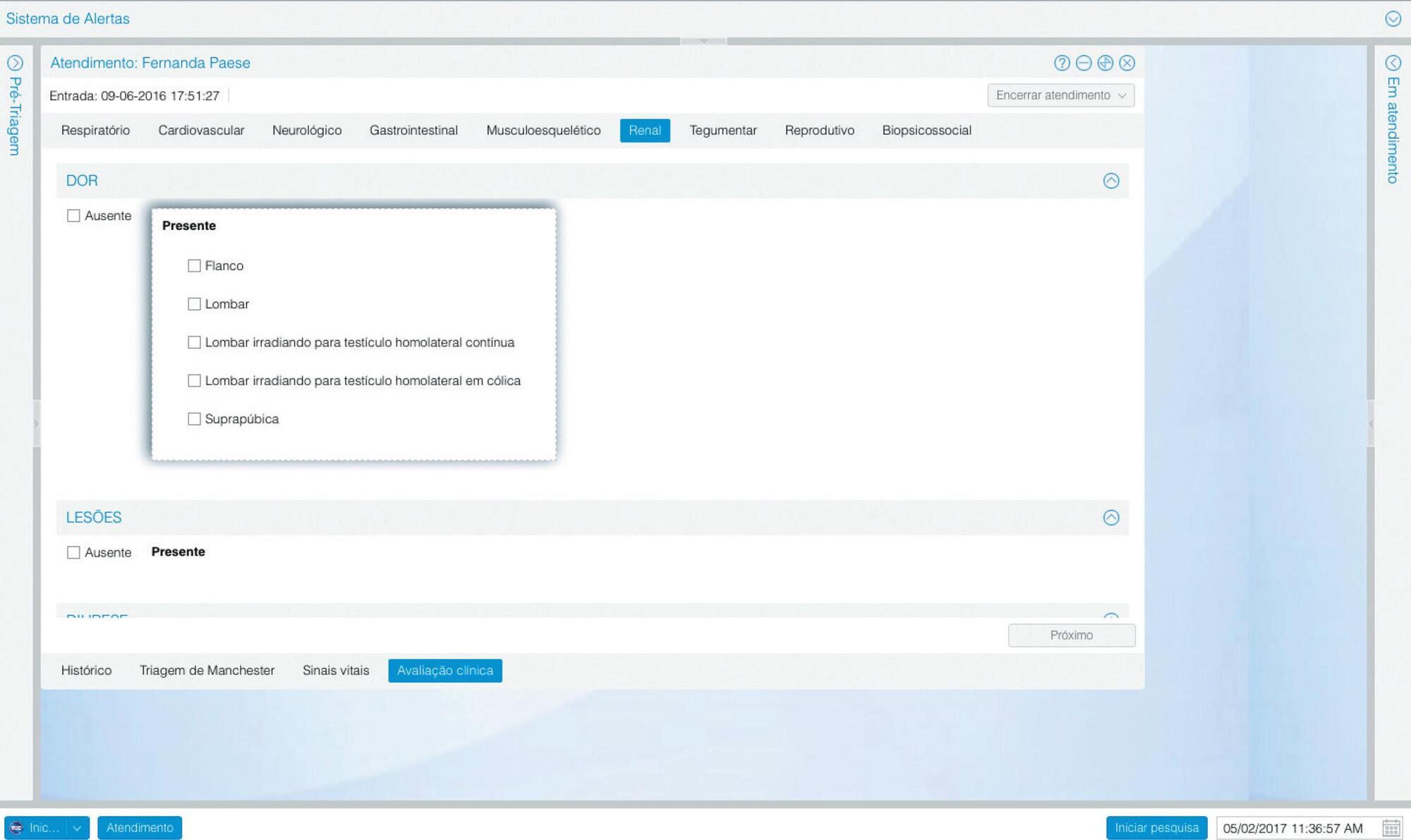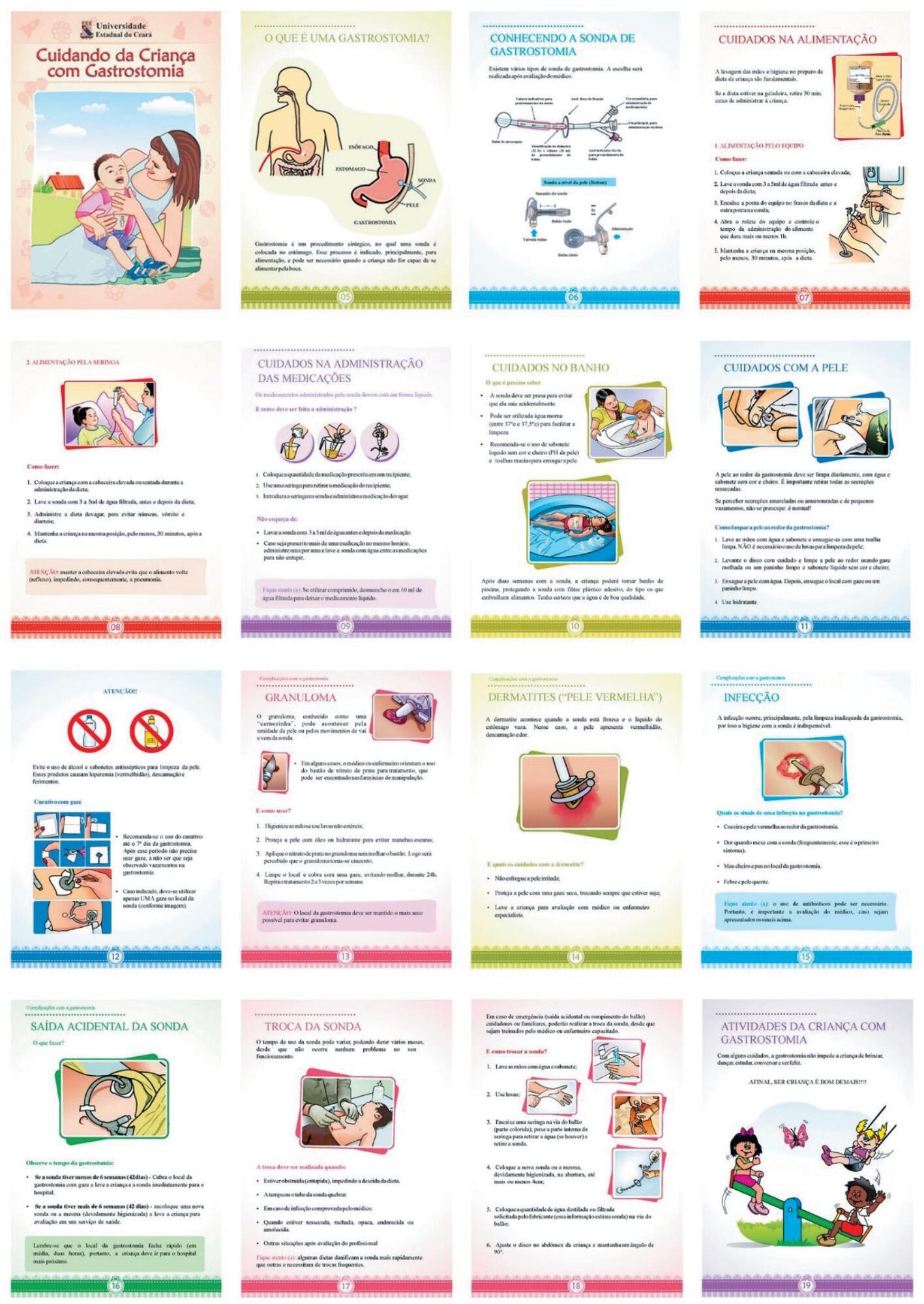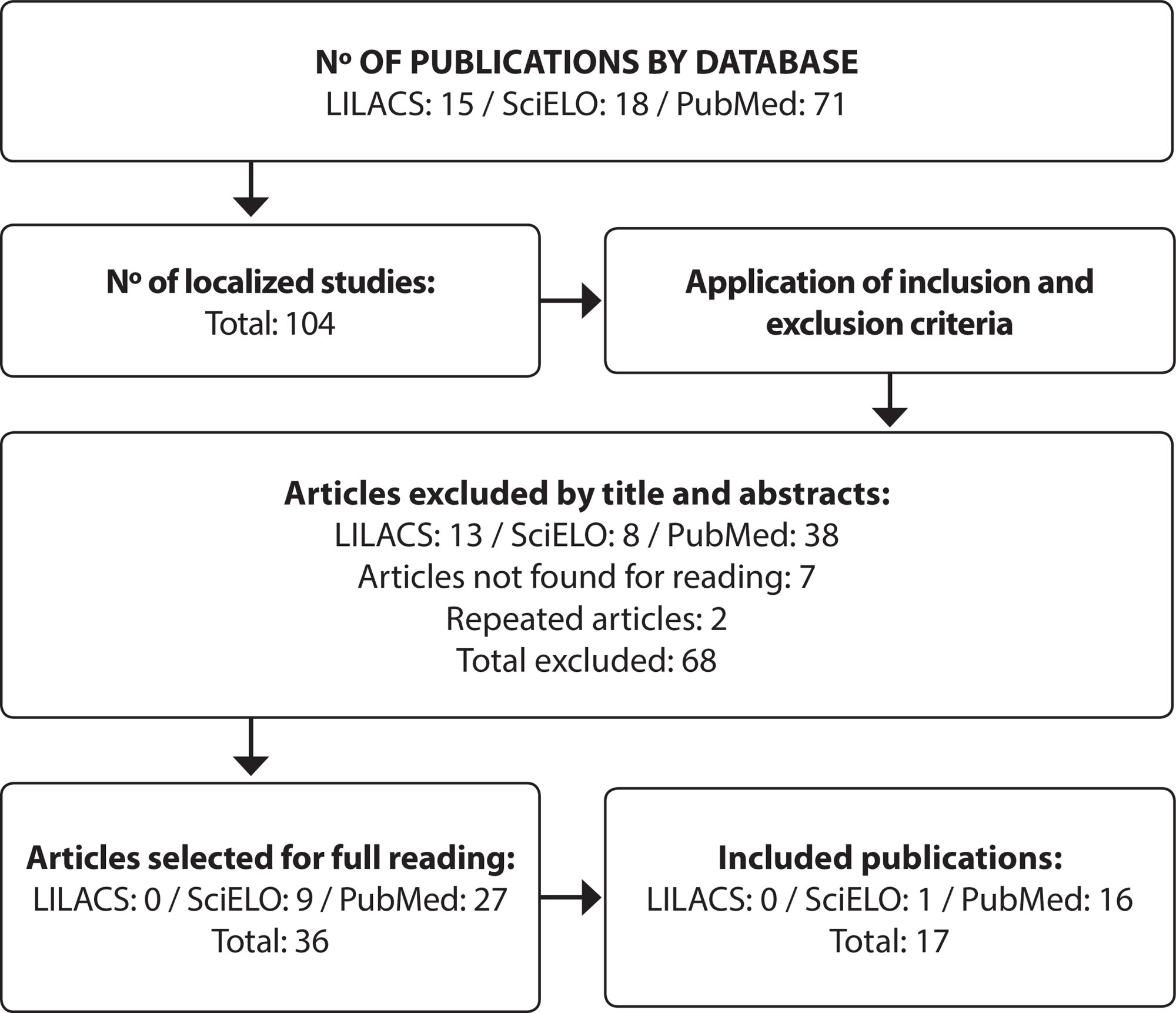-
RESEARCH01-01-2018
Nursing care to patients with diabetes based on King’s Theory
Revista Brasileira de Enfermagem. 2018;71(3):1092-1098
Abstract
RESEARCHNursing care to patients with diabetes based on King’s Theory
Revista Brasileira de Enfermagem. 2018;71(3):1092-1098
DOI 10.1590/0034-7167-2016-0268
Views1See moreABSTRACT
Objective:
To verify the effectiveness of nursing interventions based on the Imogene King’s Theory of Goal Attainment, on improving care for people with diabetes and adherence to treatment.
Method:
Quasi-experimental, longitudinal, randomized, simple study in a Primary Health Care Unit, in the city of Fortaleza, Ceará state, Brazil. The sample consisted of 60 people with diabetes, divided into intervention and control groups, whose collection occurred from February to August 2013.
Results:
In the intervention group, a significant adherence of the patients to the goals defined in the study was found. In the control, there was improvement in some aspects of the treatment.
Conclusion:
With these results, it was possible to conclude the feasibility of using Theory of Goal Attainment in the positive aspects for adherence to diabetes treatment and improvement of quality of life.
-
RESEARCH01-01-2018
Intervention in social skills and bullying
Revista Brasileira de Enfermagem. 2018;71(3):1085-1091
Abstract
RESEARCHIntervention in social skills and bullying
Revista Brasileira de Enfermagem. 2018;71(3):1085-1091
DOI 10.1590/0034-7167-2017-0151
Views0See moreABSTRACT
Objective:
to verify if the improvement of social and emotional skills reduces bullying victimization in 6th grade students 12 months after the end of the intervention.
Method:
Quasi-experimental study with 78 students who were bullying victims. A cognitive behavioral intervention based on social skills was conducted with the intervention group. The eight sessions addressed politeness, making friendships, self-control, emotional expressiveness, empathy, assertiveness and solution of interpersonal problems. Data were analyzed using Poisson regression with random effect.
Results:
Quasi-experimental study with 78 students who were bullying victims. A cognitive behavioral intervention based on social skills was conducted with the intervention group. The eight sessions addressed politeness, making friendships, self-control, emotional expressiveness, empathy, assertiveness and solution of interpersonal problems. Data were analyzed using Poisson regression with random effect.
Conclusion:
Social skills are important in anti-bullying interventions and can be the basis for intersectoral interventions in the health area, aimed at favoring the empowerment of victims by improving their social interactions and quality of life in school.
-
RESEARCH01-01-2018
Structuring methodology of the Computerized Nursing Process in Emergency Care Units
Revista Brasileira de Enfermagem. 2018;71(3):1079-1084
Abstract
RESEARCHStructuring methodology of the Computerized Nursing Process in Emergency Care Units
Revista Brasileira de Enfermagem. 2018;71(3):1079-1084
DOI 10.1590/0034-7167-2016-0619
Views0See moreABSTRACT
Objective:
To structure the Computerized Nursing Process using the International Classification for Nursing Practice (ICNP®) version 2.0 to emergency care units in a computerized structure.
Method:
This is a methodological and technological research that followed the stages: (1) establishment of the development team and resources; (2) adequacy of clinical situations, diagnoses and nursing interventions for the emergency area; (3) association of diagnoses and interventions based on ICNP®; (4) organization and codification of clinical evaluation, diagnoses and nursing interventions; (5) transfer of data to the a computerized platform.
Results:
Readjustment and construction of 1,445 possibilities of clinical evaluations associated with 961 different diagnoses and their corresponding interventions to the most frequent situations in emergency services.
Conclusion:
ICNP® has a strong and solid form for the development of the computerized nursing process able to support nurses in safe decision-making to improve the quality of health care.

-
RESEARCH01-01-2018
Competencies for educational actions of Family Health Strategy nurses
Revista Brasileira de Enfermagem. 2018;71(3):1072-1078
Abstract
RESEARCHCompetencies for educational actions of Family Health Strategy nurses
Revista Brasileira de Enfermagem. 2018;71(3):1072-1078
DOI 10.1590/0034-7167-2017-0390
Views0See moreABSTRACT
Objective:
To create competencies for the educational actions of nurses in the care and management work processes at the Family Health Strategy.
Method:
This is an exploratory, descriptive research, with a qualitative approach, on nurses of the Family Health Strategy (FHS) from a municipality in the Greater São Paulo. It was performed through semi-structured interviews and workshops.
Results:
There is a set of specific competencies for the educational actions of the nurse in care work, geared towards meeting the health needs of users/community; and for educational actions in management work, focused on work organization of the health team, indicating the importance of this work to FHS.
Final considerations:
Creating competencies proved to be significant to reflect on the educational actions of the FHS nurses and can be used as a strategy in permanent education processes.
-
RESEARCH01-01-2018
Longitudinality in Primary Health Care: a comparison between care models
Revista Brasileira de Enfermagem. 2018;71(3):1063-1071
Abstract
RESEARCHLongitudinality in Primary Health Care: a comparison between care models
Revista Brasileira de Enfermagem. 2018;71(3):1063-1071
DOI 10.1590/0034-7167-2017-0014
Views0See moreABSTRACT
Objective:
to evaluate the attribute longitudinality in different models of assistance in Primary Health Care and observe its association with demographic, socioeconomic and health care characteristics.
Method:
a cross-sectional study, carried out in 2015 with 1076 adult users of primary care services in the 32 cities of the 4th Regional Health Care Core of Rio Grande do Sul State. The Primary Care Assessment Tool was used with definition of low (<6.6) or high (≥6.6) score for longitudinality. The association with independent variables was observed through the Poisson regression.
Results:
the attribute was better assessed in the Family Health Strategy and associate with age, housing health region and care model.
Conclusion:
the study points out the Family Health Strategy as a promoter of longitudinal care, and so, it suggests the expansion of this assistance model coverage for quality improvement in health care.
-
RESEARCH01-01-2018
Effectiveness of an educational intervention on knowledge-attitude-practice of older adults’ caregivers
Revista Brasileira de Enfermagem. 2018;71(3):1055-1062
Abstract
RESEARCHEffectiveness of an educational intervention on knowledge-attitude-practice of older adults’ caregivers
Revista Brasileira de Enfermagem. 2018;71(3):1055-1062
DOI 10.1590/0034-7167-2017-0100
Views0See moreABSTRACT
Objective:
To compare the knowledge, attitude and practice of older adults’ caregivers before and after an educational intervention in the domains of the care between caregiver and older adult, feeding, bathing, hygiene and mobility and transportation.
Method:
Quasi-experimental study carried out with 82 caregivers, of which 34 participated in the intervention. Interviews were conducted through a knowledge, attitude and practice research on the older adults` care
Results:
The educational intervention led to improvements in knowledge, attitude and practice, with statistical significance of attitude (p <0.020) and practice (p <0.001), in the domain of the care between caregiver and older adult; knowledge (p <0.001) and practice (p <0.003) in feeding; Knowledge (p <0.001) and practice (p <0.001) in bathing and hygiene; and knowledge (p <0.001), attitude (p <0.001) and practice (p <0.001) in mobility and transportation. The analysis of the 34 caregivers who started and completed the study showed an improvement in attitude in most of the domains.
Conclusion:
the educational intervention is an effective and viable strategy for older adults’ caregivers.
-
RESEARCH01-01-2018
Environmental variables and errors in the preparation and administration of medicines
Revista Brasileira de Enfermagem. 2018;71(3):1046-1054
Abstract
RESEARCHEnvironmental variables and errors in the preparation and administration of medicines
Revista Brasileira de Enfermagem. 2018;71(3):1046-1054
DOI 10.1590/0034-7167-2016-0041
Views0See moreABSTRACT
Objective:
to identify the relationship between environmental factors and errors in the preparation and administration of antibacterial.
Method:
an observational, cross-sectional study conducted between August and December, 2014 in two clinical units. The sample consisted of 265 doses of medication, observed in different shifts that through a form had the environmental conditions of noise, illumination, humidity, temperature and physical space measured in the preparation and administration stages.
Results:
the physical dimension for the preparation was inadequate in one unit (3.8m2), and the items illumination, temperature and noise were extremely oscillating in the three shifts and in the two clinics, with averages generally higher than the recommended for the hospital environment, however, variations in illumination and noise were not statistically significant to cause dose errors or erroneous medicine choice (p> 0.05).
Conclusion:
the environmental variables analyzed may favor medication errors in both the preparation and administration stages.
-
RESEARCH01-01-2018
The use of gamification to teach in the nursing field
Revista Brasileira de Enfermagem. 2018;71(3):1038-1045
Abstract
RESEARCHThe use of gamification to teach in the nursing field
Revista Brasileira de Enfermagem. 2018;71(3):1038-1045
DOI 10.1590/0034-7167-2017-0023
Views0See moreABSTRACT
Objectives:
To investigate whether the course offer with elements of gamification contributes to the formation of competences in Informatics in Nursing; and evaluate it based on teaching and learning criteria and content structure.
Method:
Exploratory, applied and technological innovation research, with a qualitative and quantitative approach, developed at a university in the southern region of the country between February and November 2016. Participants were professors (5) and nursing students (10).
Results:
The adoption of gamification was considered an interesting and innovative approach, as an alternative to traditional practices and applicable to Nursing teaching. In the quantitative analysis, it was observed that the course contemplates the set of evaluated criteria.
Final considerations:
Gamification contributes to the formation of competences among Nursing students for positively influencing the teaching-learning process. It can be understood as one more resource in the teaching work with a view to student motivation and meaningful learning.
-
ORIGINAL ARTICLE09-16-2019
Validation of educational booklet: an educational technology in dengue prevention
Revista Brasileira de Enfermagem. 2019;72(5):1318-1325
Abstract
ORIGINAL ARTICLEValidation of educational booklet: an educational technology in dengue prevention
Revista Brasileira de Enfermagem. 2019;72(5):1318-1325
DOI 10.1590/0034-7167-2018-0771
Views0See moreABSTRACT
Objective:
to validate a booklet on dengue prevention in order to make it an educational technology to be used with the population.
Method:
methodological study, carried out with two groups of judges specialized in health and other areas. For data analysis, the calculation of Content Validity Index was carried out.
Results:
the booklet, in general, was considered valid by the expert judges, since it obtained an overall CVI of 70%. However, it has undergone a textual and aesthetic re-elaboration. The changes were based on the substitution of expressions, phrases, information additions and language adequacy. The illustrations were redone, adding clarity, expressiveness, movement, interaction and contextualization.
Conclusion:
the booklet is valid to be used for the population, with the purpose of informing, in a playful way, the forms of prevention and combat to mosquito transmitting dengue.

-
REVIEW09-18-2020
Mental health of healthcare professionals in China during the new coronavirus pandemic: an integrative review
Revista Brasileira de Enfermagem. 2020;73:e20200338
Abstract
REVIEWMental health of healthcare professionals in China during the new coronavirus pandemic: an integrative review
Revista Brasileira de Enfermagem. 2020;73:e20200338
DOI 10.1590/0034-7167-2020-0338
Views0See moreABSTRACT
Objective:
to identify publishing related to the mental health of health professionals working in the front line of the COVID-19 pandemic.
Methods:
an integrative review that included primary articles indexed in the Latin American and Caribbean Literature in Health Sciences, Medical Literature Analysis and Retrieval System Online, Cumulative Index to Nursing and Allied Health Literature, Scopus, Embase, Web of Science, Science Direct databases and US National Library of Medicine databases. The result analysis was performed descriptively, in four analytical categories.
Results:
The publishing involved aspects related to insufficient personal protective equipment, feelings of fear and stigma, the need for psychological and psychiatric support and the possibility of post-outbreak mental disorders.
Conclusion:
All mentioned aspects have a direct impact on the mental health of professionals, demanding the creation of strategies that minimize the emotional burnout of workers, considering that each country and culture reacts differently to the disease.

-
ORIGINAL ARTICLE06-27-2019
Religious/spiritual coping and level of hope in patients with cancer in chemotherapy
Revista Brasileira de Enfermagem. 2019;72(3):640-645
Abstract
ORIGINAL ARTICLEReligious/spiritual coping and level of hope in patients with cancer in chemotherapy
Revista Brasileira de Enfermagem. 2019;72(3):640-645
DOI 10.1590/0034-7167-2018-0358
Views0See moreABSTRACT
Aim:
To demonstrate the relationship between religious/spiritual coping and hope in cancer patients undergoing chemotherapy.
Method:
This is a cross-sectional, descriptive study with a quantitative approach performed in a reference outpatient clinic in Caruaru, PE, between August and October 2017. A total of 82 cancer patients undergoing chemotherapy were included in the study, using the brief religious/spiritual coping scale (RCOPE-Brief) and the Herth Hope Scale (HHS).
Results:
The sample presented mean positive RCOPE scores (3.03 ± 0.41) and the level of hope was considered high (42.7 points ± 3.67). Patients who had a high RCOPE score were found to have a higher mean of Herth’s level of hope (44.12 points).
Conclusion:
This study becomes relevant to nursing professionals by encouraging care that takes into account the patient’s spiritual dimension in order to stimulate positive mechanisms of religious coping and, consequently, raise the levels of hope.
-
ORIGINAL ARTICLE04-22-2020
Construction and validation of an educational booklet on care for children with gastrostomy
Revista Brasileira de Enfermagem. 2020;73(3):e20190108
Abstract
ORIGINAL ARTICLEConstruction and validation of an educational booklet on care for children with gastrostomy
Revista Brasileira de Enfermagem. 2020;73(3):e20190108
DOI 10.1590/0034-7167-2019-0108
Views0See moreABSTRACT
Objectives:
to describe the process of construction and validation of an educational booklet on care for children with gastrostomy, directed to caregivers.
Methods:
a methodological study developed in five stages: bibliographic survey; situational diagnosis; illustration, layout, design and text construction; expert validation and Flesch-Kincaid Readability calculation; validation with the target audience. Content Validity Index and Suitability Assessment of Materials were applied for expert analysis.
Results:
the Content Validity Index obtained overall score of 0.93. In the Suitability Assessment of Materials score, the booklet scored 85.2%. It presented a satisfactory readability percentage, with an overall score of 72%, and was consistent with caregivers’ assessment in the validation with the target audience, considering the explanatory technology, important and adequate.
Conclusions:
the developed educational booklet was considered valid for use by caregivers, thus contributing to the maintenance of best practices in care for children with gastrostomy.

-
REVIEW12-05-2019
Hospital transition care for the elderly: an integrative review
Revista Brasileira de Enfermagem. 2019;72:294-301
Abstract
REVIEWHospital transition care for the elderly: an integrative review
Revista Brasileira de Enfermagem. 2019;72:294-301
DOI 10.1590/0034-7167-2018-0286
Views0See moreABSTRACT
Objective:
to identify evidence of scientific production on hospital transition care provided to the elderly.
Method:
an integrative review, with publications search in the MEDLINE, PubMed, LILACS, BDENF, Index Psychology and SciELO databases, with keywords and Mesh terms: elderly, hospitalization, patient discharge, health of the elderly, and transitional care, between 2013 and 2017 in English, Portuguese and Spanish. The 14 selected articles analysis was carried out through exploratory and critical reading of titles, abstracts and results of the researches.
Results:
transitional care can prevent re-hospitalizations as they enable rehabilitation, promotion and cure of illnesses in the elderly.
Final considerations:
transitional care implies the improvement of the quality of life of the elderly person, requiring skilled health professionals who involve the family through accessible communication.

-
REVIEW08-07-2020
Positive aspects of authentic leadership in nursing work: integrative review
Revista Brasileira de Enfermagem. 2020;73(6):e20190118
Abstract
REVIEWPositive aspects of authentic leadership in nursing work: integrative review
Revista Brasileira de Enfermagem. 2020;73(6):e20190118
DOI 10.1590/0034-7167-2019-0118
Views0See moreABSTRACT
Objective:
To identify and analyze the existing scientific production on the positive aspects of authentic leadership in the nurse’s work process.
Method:
This is an integrative literature review. The databases used were Scientific Electronic Library Online; Latin American and Caribbean Literature on Health Sciences; and National Library of Medicine – National Institutes of Health.
Results:
In this study, 17 articles were selected for analysis; 1 study (6%) was published in a national journal, and 16 (94%) were international studies. Of the 17 (100%) articles studied, 11 (65%) were developed in Canada. The hospital environment was present in the 17 (100%) articles.
Final considerations:
Authentic leadership has several positive aspects that significantly influence the nurse’s work process, such as engagement and job satisfaction, retention of new nurses, organizational commitment, among others.

-
ORIGINAL ARTICLE12-21-2020
Development of an appearance validity instrument for educational technology in health
Revista Brasileira de Enfermagem. 2020;73:e20190559
Abstract
ORIGINAL ARTICLEDevelopment of an appearance validity instrument for educational technology in health
Revista Brasileira de Enfermagem. 2020;73:e20190559
DOI 10.1590/0034-7167-2019-0559
Views1See moreABSTRACT
Objectives:
to develop and evaluate the convergence of the instrument for the appearance validity of educational technologies in health.
Methods:
methodological study conducted in two steps. In step 1, the instrument items were developed, with subsequent content validity by nine specialists in the development of educational technologies in health. In step 2, the convergent validity between another instrument and the appearance instrument was performed. Correlation results above r> 0.3 and p <0.05 were considered as plausible convergent validity.
Results:
the ten items of the initial version of the appearance instrument were submitted to content validity that resulted in a final version with 12 items (Content Validity Index = 0.93). The correlation indexes were strong with the objective and appearance domains; moderate with motivation, organization and total; and weak with writing style.
Conclusions:
the appearance instrument demonstrated content validity and convergent validity, in addition to a strong correlation with the other instrument.
-
ORIGINAL ARTICLE02-10-2020
Burnout among nursing students: predictors and association with empathy and self-efficacy
Revista Brasileira de Enfermagem. 2020;73(1):e20180280
Abstract
ORIGINAL ARTICLEBurnout among nursing students: predictors and association with empathy and self-efficacy
Revista Brasileira de Enfermagem. 2020;73(1):e20180280
DOI 10.1590/0034-7167-2018-0280
Views0See moreABSTRACT
Objective:
to analyze burnout, its predictors and association with empathy and self-efficacy among nursing students.
Method:
cross-sectional analytical study with 284 students from five state universities in the state of Parana, Brazil. The instruments applied were: social and academic questionnaire, Maslach Burnout Inventory, Interpersonal Reactivity Index and Occupational Self-Efficacy Scale (Short Form). Spearman’s correlation and univariate and multivariate logistic analysis were used.
Results:
6.0% of the students presented high burnout, 36.3% presented high emotional exhaustion, 37.7% presented high depersonalization and 28.2% presented low personal accomplishment. The burnout predictors were: absence of physical activity; weekly workload >24 hours; low empathic concern. There were negative correlations between empathy (empathic concern and perspective taking) and depersonalization; self-efficacy and emotional exhaustion; and positive correlations between personal accomplishment and empathy and self-efficacy.
Conclusion:
Personal factors and an academic variable were burnout predictors among nursing students. The correlations suggest that self-efficacy and empathy can prevent burnout.
Search
Search in:
Nuvem de Tags
Adolescente (85) Atenção Primária à Saúde (239) COVID-19 (91) Criança (91) Cuidados de Enfermagem (269) Educação em Enfermagem (151) Educação em Saúde (139) Enfermagem (930) Enfermagem Pediátrica (86) Estudantes de Enfermagem (77) Estudos de Validação (131) Família (87) Idoso (208) Promoção da Saúde (99) Qualidade de Vida (104) Saúde do Trabalhador (86) Saúde Mental (145) Saúde Pública (82) Segurança do Paciente (150) Tecnologia Educacional (100)



